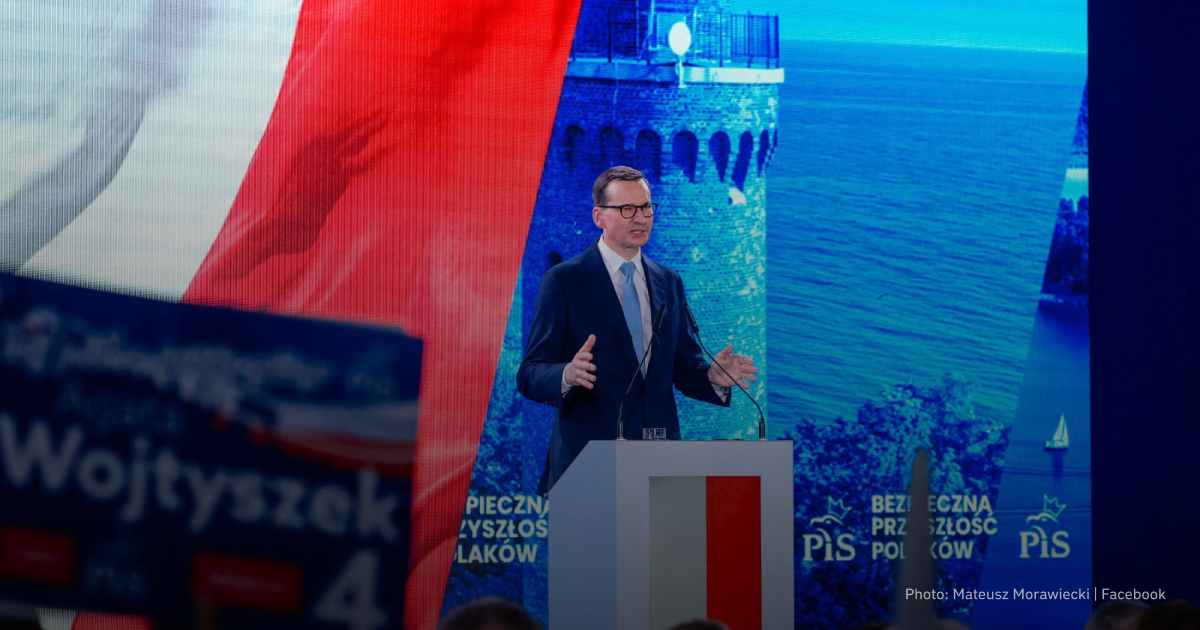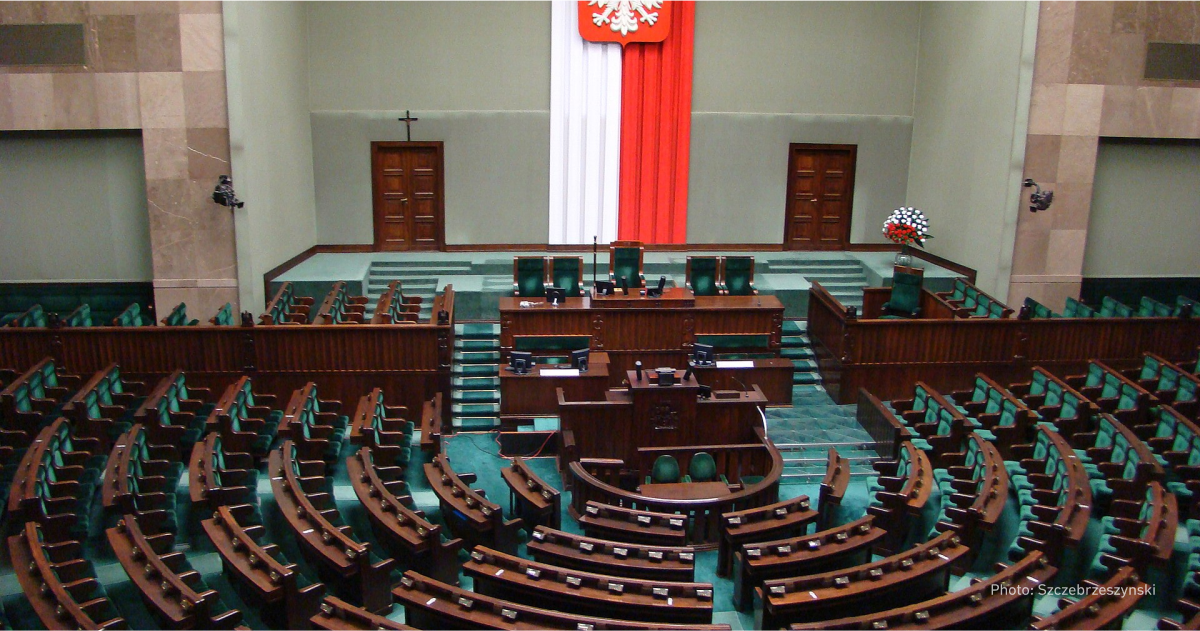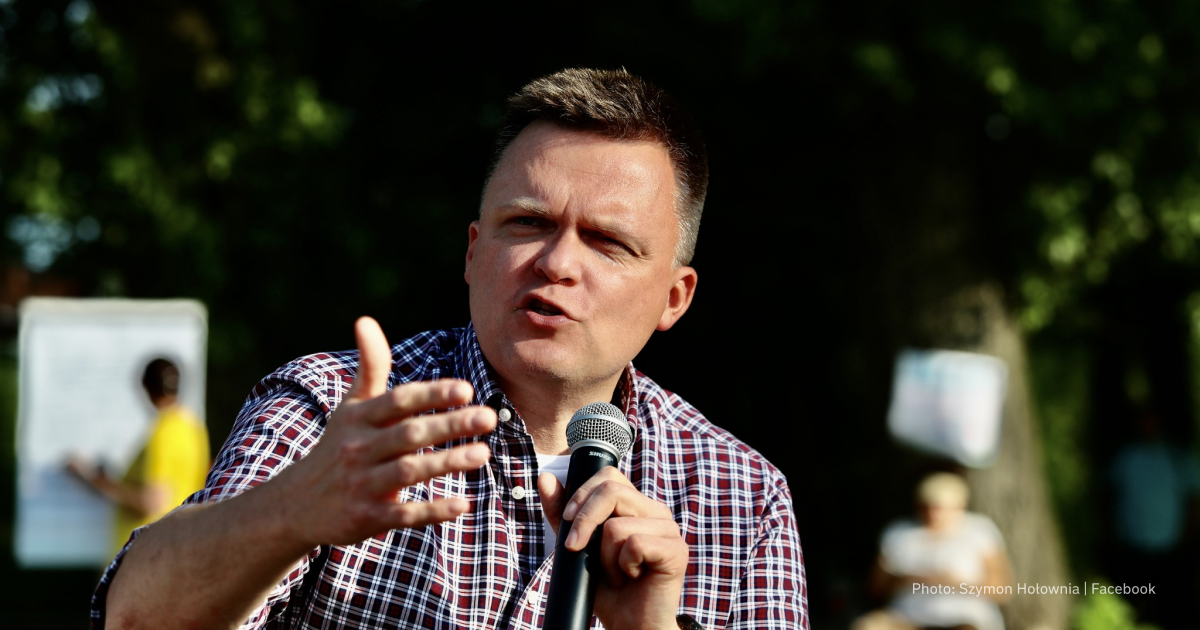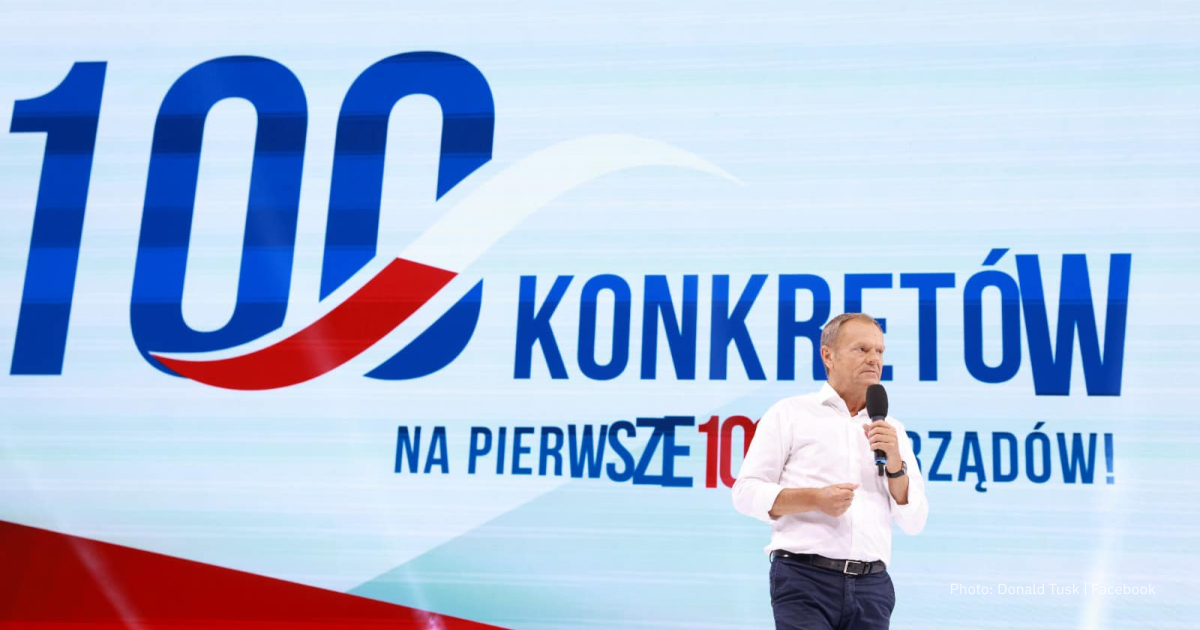Polish Prime Minister Morawiecki presents his government. Why might it fail to win a vote of confidence in the Polish parliament?

Polish Prime Minister Mateusz Morawiecki has presented a new government. Now, he has two weeks to get a vote of confidence from the Polish Sejm.
RMF24 reports.
Mariusz Błaszczak will remain the Minister of National Defence. Marlena Maląg will become Minister of Development and Technology. Szymon Szynkowski will head the Ministry of Foreign Affairs, and Marcin Warchoł will head the Ministry of Justice.
Marzena Małek will manage the State Assets Sector. Dorota Bojemska will head the Ministry of Family and Social Policy.
On November 13, Polish President Andrzej Duda accepted the government's resignation and instructed Morawiecki to form a new cabinet.
The Prime Minister had two weeks to do so. During this period, Morawiecki said that his government "will be much smaller and include a large number of women." And so it is. In total, the government has 18 officials, including ten women.
Now Mateusz Morawiecki has two more weeks to get a vote of confidence from the Polish Sejm.
According to the Polish Constitution, if Morawiecki fails to receive the vote, the Sejm will assume the authority to form the government. A candidate for prime minister must be nominated by a group of at least 46 MPs.

Morawiecki's government may not receive a vote of confidence from the Polish parliament
On October 15, Poland held parliamentary elections, which saw the highest voter turnout in the history of democratic Poland.
Kaczyński's Law and Justice (PiS) won the election with 35.38% of the vote. PiS was about 5% ahead of Donald Tusk's opposition Civic Coalition.
In addition, the Third Way coalition (the Polish Peasant's Party and the alliance of Poland 2050) won 14.4% of the vote, as did the New Left (8.61%) and the far-right Confederation (7.16%).
Even though PiS has the largest number of seats in the Sejm, the party needed more votes to guarantee a majority.
Instead, on November 10, the opposition groups Civic Coalition, the Third Way and the New Left signed a coalition agreement. Thus, the opposition now forms the majority of the parliament.
We want to show everyone that safe change is coming - for everyone, regardless of their beliefs, who they voted for, or what they want to do with their lives. This is the first open coalition agreement of Polish governments,
said Szymon Hołownia, leader of the Poland 2050 party, part of the Third Way.

Due to the unification of the opposition, Morawiecki's government will receive no recognition. The opposition called the attempts to form a government "a farce and a delay."
We all know this is one big comedy,
said MP from Civic Coalition Marcin Kierwiński.
In addition, the Polish opposition claims to have a government of its own.
At the same time, Kierwiński said that the government of would-be Prime Minister Donald Tusk "is 100% formed in terms of ministers".
What do we know about the Civic Coalition and Donald Tusk?
Donald Tusk is a former Prime Minister of Poland (2007-2014) and President of the European Council (2014-2019). He participated in the 2003 presidential election.

In 2001, he founded the Civic Platform party.
In 2005, the Civic Platform came second in the parliamentary elections, losing to the PiS. In 2007, the party won the snap election and nominated Donald Tusk for prime minister.
Since 2014, Tusk has recognised the war against Ukraine and called sanctions against Russia the best way to fight aggression.
In 2018, the Civic Platform joined the Civic Coalition, a universal political alliance. The coalition consists of political parties with political stances ranging from the centre-left to the centre-right.
In the October 2023 elections, the association ran as an opposition to the ruling Law and Justice party (PiS).
"The Civic Coalition has criticised the PiS ruling party's decisions regarding Ukraine, including the ban on imports of Ukrainian grain.
On September 22, party chairman Donald Tusk proposed "to create an infrastructure that will not prevent the transit of Ukrainian products through Poland, but will not allow them to stay in the country".
Earlier, Svidomi talked about the Civic Coalition and other parties participating in the Polish parliamentary elections in October and their position on Ukraine.


